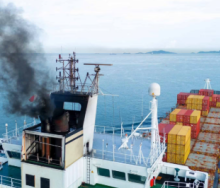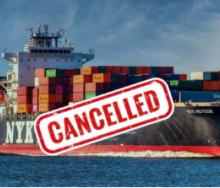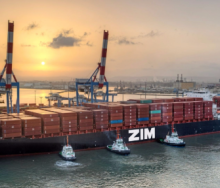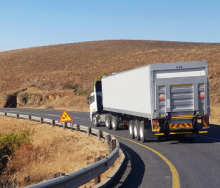Transnet’s financial loss for the 2023/24 financial year ballooned to R7.3 billion, with a large portion of this amount attributed to an ongoing tariff dispute with Total and Sasol linked to the National Petroleum Refiners of SA (Natref) fuel line.
Despite this, the state-owned ports and rail operator reported significant investments in infrastructure, improved operational performance, and modest growth in rail and port cargo volumes.
At a media briefing on Monday, Transnet chairperson, Andile Sanqu, acknowledged the challenges the company was still facing following the many years of hollowing out due to corruption during the State Capture years.
However, he said Transnet’s recovery plan, implemented in October 2023 to turn around the business, with goals set over six, 12 and 18-month intervals, was beginning to yield results.
“When we met about a year ago to table the annual results for the 2022/23 financial year, we outlined to you the crisis facing the organisation. It was clear that urgent intervention was required to arrest the decline in performance and stabilise operations,” Sanqu said.
He added that while the latest annual results had shown some marginal improvements, the overall financial position was still negatively affected by the R4.7bn accounting provision made for the Natref dispute. This legal matter involves historical tariffs charged for use of a fuel pipeline under an Apartheid-era agreement, which is currently under litigation in the High Court.
Transnet CEO Michelle Phillips said Transnet Freight Rail (TFR) had seen a 1.5% increase in rail volumes, reaching 151.17 million tonnes, up from 149.5 million tonnes in the previous year. Port cargo volumes also grew by 2.9%, totalling 4.152m TEUs.
However, she said TFR continued to face serious ongoing challenges, including “locomotive shortages, persistent issues with infrastructure, vandalism, and theft”. She reported a 5.4% increase in security incidents, with cable theft making up 57% of these, resulting in the theft of over 1 000 kilometres of cable.
Phillips said vandalism and theft of infrastructure had resulted in a “quite extensive” effect, costing the company R4.2bn in lost volumes, security and replacement and repair costs. Security alone cost the company R19.15bn in 2023/24 up from R1.795bn during the previous year.
She added that the entity’s liberalisation of its rail and port systems was well under way, which would see the introduction of third-party access to allow private-sector train operators to use its rail network, and private partnerships in port operations in Richards Bay and Durban.
“These changes are designed to modernise the sector and increase private-sector participation, ensuring that Transnet remains competitive in a rapidly evolving environment,” she said.
Transnet Group CFO Nosipho Maphumulo reported a 12% growth in revenue to R76.7bn, but noted that net operating expenditure had grown by 19.2% to R54.7 billion, largely driven by litigation costs, increased personnel, and security expenses.
Maphumulo expressed confidence in Transnet’s recovery, saying the business had set a target to post a R1bn profit by the end of the 2024/5 financial year.
“If we reduce our cost to serve, move more volumes, and dispose of non-core items, there is no reason why Transnet will not return to profit,” she said.













